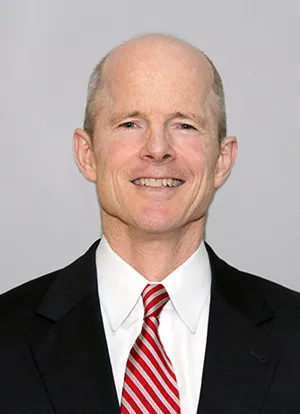Economist Stephen O’Connell on Lessons Learned from the Ebola Epidemic

Econofact.org: Lives vs. Livelihoods? Lessons from the Ebola Epidemic
Writing in EconoFact, a nonpartisan publication that promotes national debate on economic and social policies, Stephen O’Connell, the Gil and Frank Mustin Professor of Economics, examines what insights can be gleaned from the West African Ebola crisis that began in late 2013 and how they might inform economic and health policy during the COVID-19 pandemic.
O’Connell first explains how aggressive social distancing creates a trade-off between saving lives and saving livelihoods by disrupting normal economic activity in the short term. In the long run, however, this trade-off can be minimized if “policies that make it safer for people to interact” are complemented by “policies that tell people to interact less.”
O’Connell offers up the West African Ebola crisis as a case study and notes that countries hit hardest by the first wave of that pandemic, such as Guinea, Liberia, and Sierra Leone, had to make difficult decisions when weighing lives against livelihoods due to the wide spread of the disease by June 2014.
“At the height of the Ebola crisis during late 2014, survey data indicated that roughly half of urban workers employed before the crisis in Liberia were without work, as businesses closed and movement restrictions shut down ordinary life,” O’Connell writes. “The best the authorities could do was to select among draconian social distancing policies that created large economic costs in return for crucial but limited traction on the growth rate of infections, and to complement these with massive efforts to improve the health-system response.”
On the other hand, countries that experienced the second round of outbreaks, such as Mali, Senegal, and Nigeria, were able to greatly limit both the social and economic cost of Ebola by acting quickly to diagnose and isolate the infected. Research by O’Connell and his colleagues shows that this early preparedness and decisive action allowed these countries to avoid the “lives or livelihood” trade-off almost entirely.
“We estimated that the lack of a policy head start cost Guinea, Liberia, and Sierra Leone over 10% of annual income per person in 2014-15 — the equivalent of nearly three full months of national income over the course of only two years,” he writes. “By contrast, the trajectories of income per person in the second-round countries were no different from those in the countries of Sub-Saharan Africa that received no infections at all.”
Lastly, O’Connell argues that although social distancing policies are necessary at the height of an outbreak, health-system improvements are more effective at containing the spread of disease while simultaneously limiting the economic effects. Social distancing helps prevent the health system from collapsing until improvements can be made to encourage economic interaction.
“The West African experience shows the importance of early warning systems, preparedness, and continual promotion of appropriate behavioral responses so infections can be diagnosed, distancing can be limited to the known or likely contacts of infected individuals and the rate of new transmissions can be sharply reduced with little economic cost,” he concludes. “The importance of health-system improvements for slowing virus transmission and mitigating economic damage, both in the midst of an established outbreak and as the pace of new infections begins to slow, cannot be overstated.”
Stephen O’Connell, the Gil and Frank Mustin Professor of Economics, is an authority on the political economy of Africa and on macroeconomic policy in low-income developing countries. With Benno Ndulu of the World Bank and under the auspices of the African Economic Research Consortium in Nairobi, O’Connell coordinated a large research project on the post-independence economic performance of African countries. The results are presented in The Political Economy of Economic Growth in Africa, 1960–2000, a two-volume study from Cambridge University Press (2008). O’Connell joined the Swarthmore faculty in 1990.



